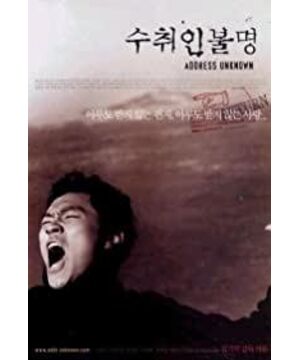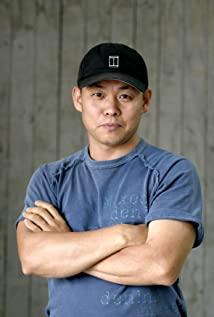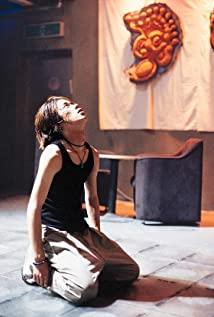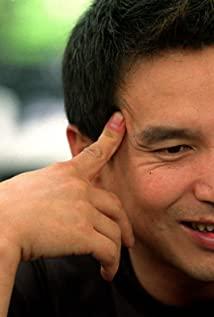It may be the most decently written film review, because it was the homework of the film and television appreciation course back then, hahaha. The following text was written on September 4, 2015:
"Unknown recipient" is the pinnacle of South Korean director Kim Ki-duk. The tone of the whole film is depressing. With cruel, angry and gloomy story images, it shows the tragic group portraits of the people's lives when the US military stationed in South Korea in the 1970s. The release of the animal nature in life, the distortion of human nature in a state of despair, the director also metaphorically exposed the essence of this relationship, and finally made a certain reflection on the war.
First of all, the title "Unknown recipient" comes from the story of the Chang-kuk family. Chang-kuk's mother married a black American soldier during World War II, and her husband returned to the United States after the Korean War. The dark-skinned Chang-kuk, like his mother, yearned for his father to come back, but at the same time, he also hated the existence of such a relationship. Chang-kuk's heart was conflicted with pain, resentment and hatred, and he took all his anger out on his mother. His mother regarded Chang-kuk as a spiritual pillar, and at the same time did not forget to write letters to her black husband. Unfortunately, the letters were always returned, and the words "address unknown" were always written on the envelopes.
In addition to the Chang-kuk family, the film also focuses on the stories that happened in the Ji-heum family and the Eun-wook family, which represents the life of the people at that time and shows the theme of the film. Almost every shot in the film has a deep meaning, and it is impossible to describe it all, so I will briefly state a few key themes in the film that I believe to be.
The distortion of human nature in a state of despair, the release of animal nature in repressed life
Through the setting of the background and the scene, the director analyzes human nature in place, telling us that human nature is complex, and the human nature that we once sung praises for is not completely noble and great. From the perspective of religious belief, human beings have divinity, that is, reason, and animal nature, that is, instinct and emotion. Humans have a good side and an evil side. In such a society, a society that deviates far from civilized society and has few clear institutions, a society that is controlled by others and has no freedom, a society that bullies the weak by the strong, and bullies the weaker by the weak, human nature The glittering parts of the swatches that are distinguished from animals are easily dimmed. Just like Ji-jeum and Eun-wook's beautiful feelings were destroyed, the ideal of human beings is not able to resist the cruelty of reality, especially under the brutal whipping of reality, human nature tends to collapse, it is fragile, it is dangerous. Almost everyone in this film has a "fierce" character, and even Ji-heum, the kindest and purest, was forced by reality to pick up a bow and arrow in the end. Once human nature is distorted to a certain extent, and the remaining rationality and emotion also disappear, then it will be completely reduced to a beast. From the beginning of Chang-kuk sitting in the cage carrying the dog, to Eun-wook watching the dog wild and releasing his desire with the dog, until finally Chang-kuk's mother ate her own son in extreme pain, I saw that in In such a society, the remaining kindness of human nature is forced to perish, the value of human life is infinitely degraded, and human beings are reduced to an experience that is no different from animals. From a certain level, I think people's contemptuous attitude towards animal life, such as butchering dogs and chickens, in the film also reflects their attitude towards human life in this society at that time.
The shattered love between men and women, the disillusioned "Hanmei fairy tale"
Chang-kuk's long wait for his black husband has always been fruitless. In Eun-wook's relationship with the US military, she has always been his possession and vent. In these deformed "loves", the woman is Korean, and the man is Korean. They are both American, and in my opinion, they are all metaphors for the relationship between Korea and the United States. History affirmed the United States, gave full play to the so-called humanitarian spirit, and aided South Korea, but the director satirized this historical affirmation. The slogan of "for world peace" held high by the United States is ridiculous, as is the promise of Chang-kuk's father to his mother, and the "I love you" that Eun-wook's US military boyfriend has repeatedly expressed to her. The relationship between South Korea and the United States is fully manifested by the unequal relationship between men and women in the two loves. For example, Eun-wook refused to take medicine and was directly slapped by the other party. When the US military left, he was forced to ask to leave a man mark on his body. Plots such as the cured eyes gouging out, all show that the status of both men and women is never equal, and the woman is just a toy, a possession, and a vent for the man. From the footage of the U.S. military planes in the film, we can see that the so-called assistance of the U.S. military is actually a kind of control. It did not create benefits for the local people, but caused the people to be in great pain. The director pierced the beautiful fairy tale of Han Meijian, which is never a real gift, and the recipient must also pay a price.
War is slaughter in the name of justice
Ji-jeum's father was always proud of killing three People's Army soldiers that year, and he happily tried the gun when he dug up the remains of a certain People's Army in a certain hole. I saw these scenes and my heart was not happy. I remember a close-up of a family photo of the People’s Army dug up in the film. I think the director’s intention is very clear. War is a kind of slaughter. Even if it relies on the name of “justice”, it is always based on shattered the foundations of countless personal happiness. Each of us has a happy life that belongs to each of us, but in a war, everything vanishes into nothing. No matter the victor or the defeated, the participants in the war or the common people, the losses are huge. Don't all the tragedies presented in this film originate from the war? This is the director's reflection on the war, and at the same time reminds us not to forget the pain of scars and cherish everything in the era of peace.
The whole film is quite extreme in the expression of the characters, but it naturally and vividly depicts the real human nature. There are also a lot of violent and heavy-mouthed elements in the film, but through these, it also shows the complex human nature very delicately. The only thing that I don't think is good enough is the ending. Since I can't watch it again, I can't tell whether it's a fake ending made by the director. If it really ends with receiving a letter, it may add to the integrity of the story, but I think it makes the film seem artificial, and destroys the cruelty of reality and the tragic fate of the film it wants to convey. theme.
View more about Suchwiin bulmyeong reviews









